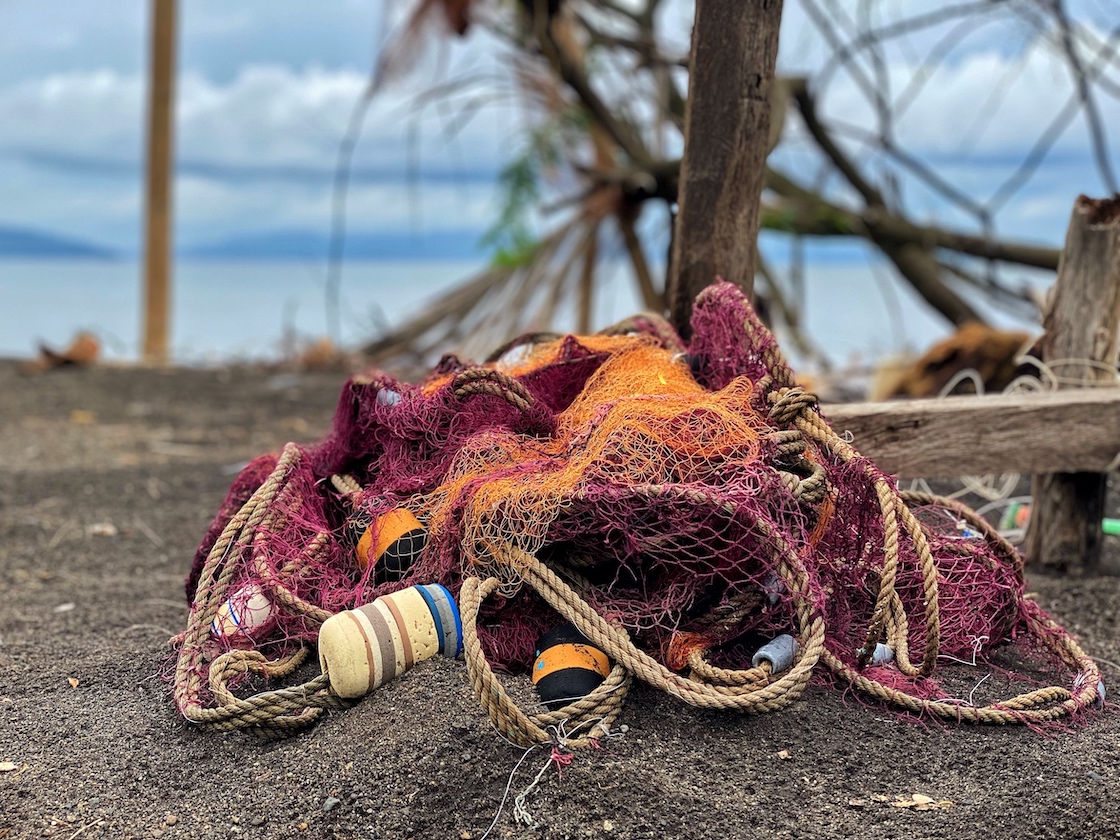A Photograph

He just approached me, Kuya Frank did, walked towards another log near the one I was sitting on—driftwoods brought by what I could only imagine was a strong current caused by the previous storm. Wood, trash, and all sorts of things were scattered along the beach. Kuya Frank was holding a mug of coffee. Most probably, instant. He offered me to get one for myself. There’s hot water, he said. I declined, told him I’ll drink mine while I have breakfast later. It was too early for breakfast, and the sea looked alluring—as if telling us to witness its grace this Monday morning.
But Kuya Frank doesn’t need convincing. He have seen the sea many mornings than he could count. And yet he looked at it still as if he was looking at it the first time. And then he started pointing towards the West. That’s Anilao, he said. We brought many divers there pre-pandemic. Now it’s close. And that’s Bonete, he pointed to an island over the horizon that looked like a round piece of bread. And that’s Calatagan. Fisherfolks from Calatagan still bring their fishes here at Lemery, where prices are higher. Perhaps, there is too much fish in Calatagan, Kuya Frank explained. I noted his supply and demand argument. It was flawless. If you catch 200-300 kilos of fish, that’s a good day, he said. If you can catch that much consistently in a month, you can easily pay for the costs of a big boat—Php 200k—plus Php 100k for the net. I was surprised by the cost of a wooden boat and its net. But that surprise was just a reflection of how ignorant I am—whose ancestors were Austronesian seafarers—about what it meant to live near the sea.
That’s when I realized I needed to ask Kuya Frank something. I excused myself to get my phone, returned, and showed him a picture of Thoreau’s mackerel sky, then asked, what do you call this sky? “Ah, kapag ganiyang may kaliskis na ulap, kailangan raw pumalaot sabi ng matatanda, at maraming mahuhuli.”
A Thought
Working on smaller tasks creates a sense of control.
When we break down our work into small and clearly separated tasks, it automatically becomes easier. This is because when tasks are small, it is easy to change course when necessary or just because we want to. This, in turn, creates a sense of control, which stirs us towards pursuing what we really are passionate about. If our work provides us with this sense of control, it becomes a source of motivation, which makes our work sustainable.
A Quote
If my hands are fully occupied in holding on to something, I can neither give nor receive.
— Dorothee Sölle
A Question
What’s one thing you’re still holding on to that you should’ve dropped a long time ago?
***
Thank you for reading. If you enjoyed this issue, please consider forwarding to a friend.